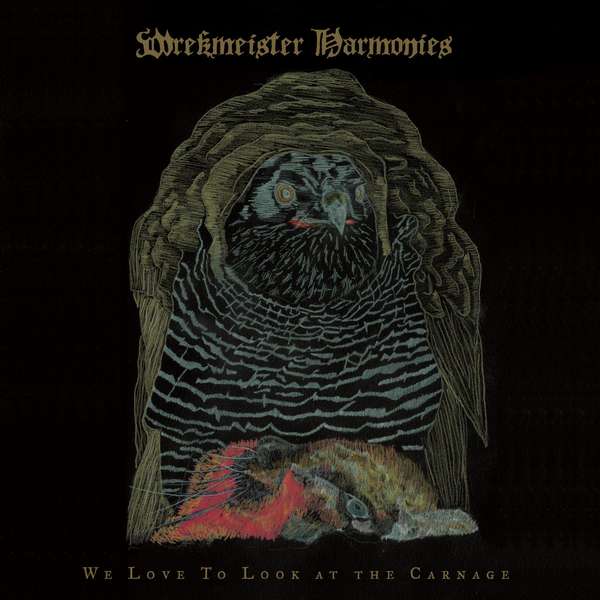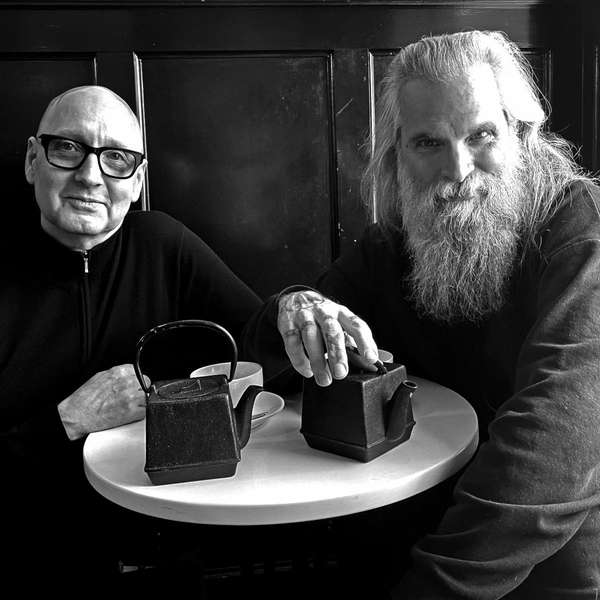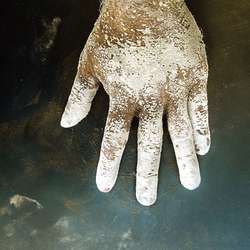Wrekmeister Harmonies style is one that is hard to pin down and give a definitive name, yet the duo of JR Robinson and Esther Shaw do create music that is beautifully intimate and stark in equal measure. Latter day works are much more stripped back and streamlined, a change from the huge swells of sound that coloured earlier works and this move into sparser territory is one that has paid off. Robinson’s deep, rich voice speaks of a long, sleepless night and the phantoms that appear – both real and imagined – in the mind of the insomniac. We Love To Look at the Carnage is a slow-burning work that incorporates Thor Harris (Swans) on percussion and Jamie Stewart’s (Xiu Xiu) sublime drones. The electronic flourishes are used respectfully and instead of overwhelming the instrumentation, they add depth and texture to an already emotive piece.
“Coyotes of Central Park” begins on soft movements of guitar and subtle percussive work while JR Robinson’s voice narrates the story, seemingly gazing out of the window onto the world below and trying to understand his time and place within it. These themes cascade through We Love To Look at the Carnage and where this song leaves a lot of space for breath and reflection, “The Rat Catcher” moves from the ethereal vocalisations of Shaw and her mournful violin, to the deep melancholy of Robinson’s voice and lyrics that speak of chemical dependency. It is stunningly affecting in its powerful shifts into layers of instrumentation with the sudden coming together of several threads of sound building the song into dramatic heights.
The closing minutes are, perhaps, unnecessary as the electronic elements build and overlapping voices push for prominence which makes the segue into final song “Immolation” somewhat jarring, as its slightly brighter tones contrast the darkness previously heard. Of course, that light is not designed to last and “Immolation” soon moves itself into more intense territory with the violin taking the lead and giving the song resonance and grace. Wrekmeister Harmonies are adept at creating a narrative that seems all too real and We Love To Look at the Carnage is a story that is forlorn and truthful.





